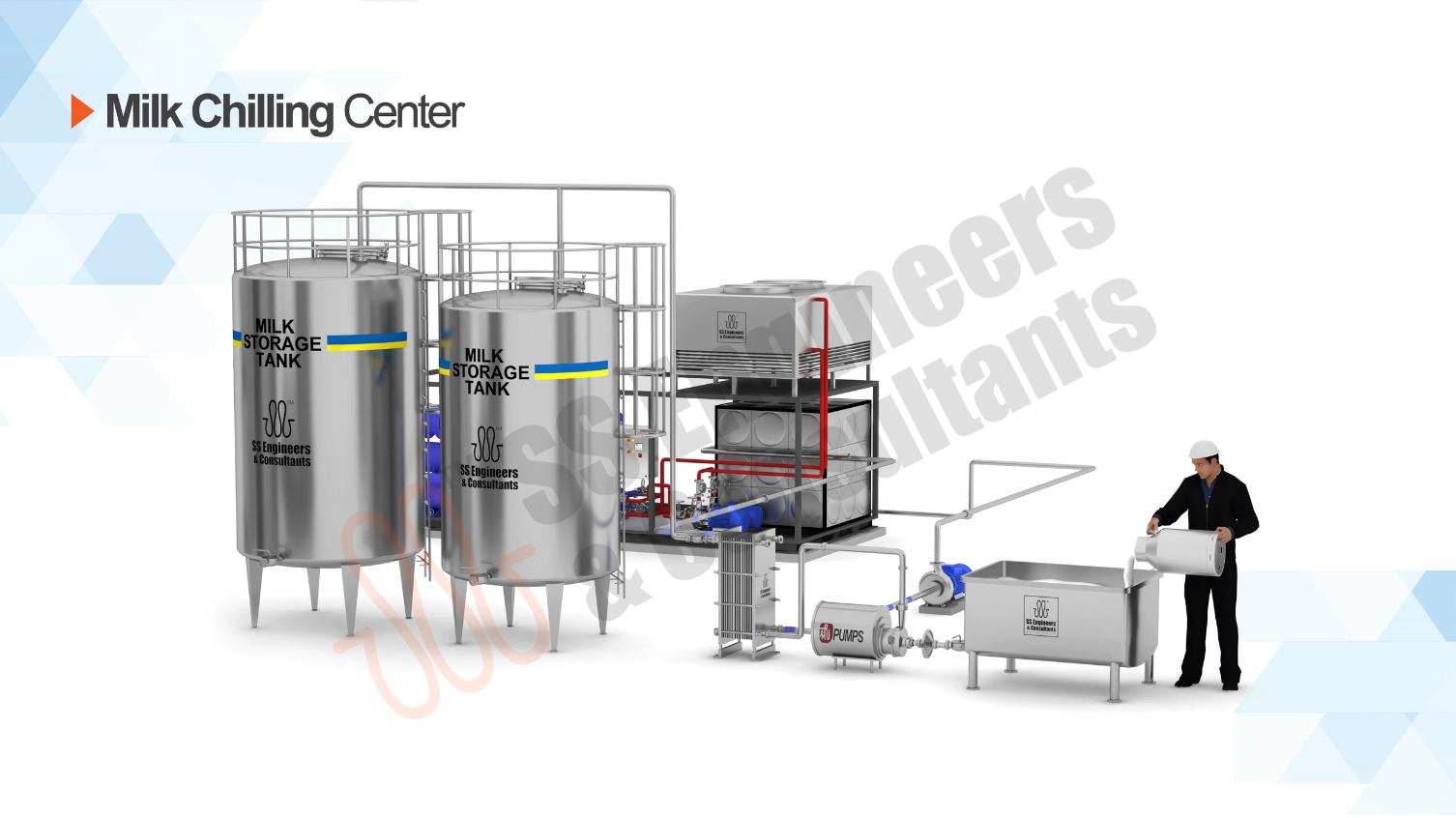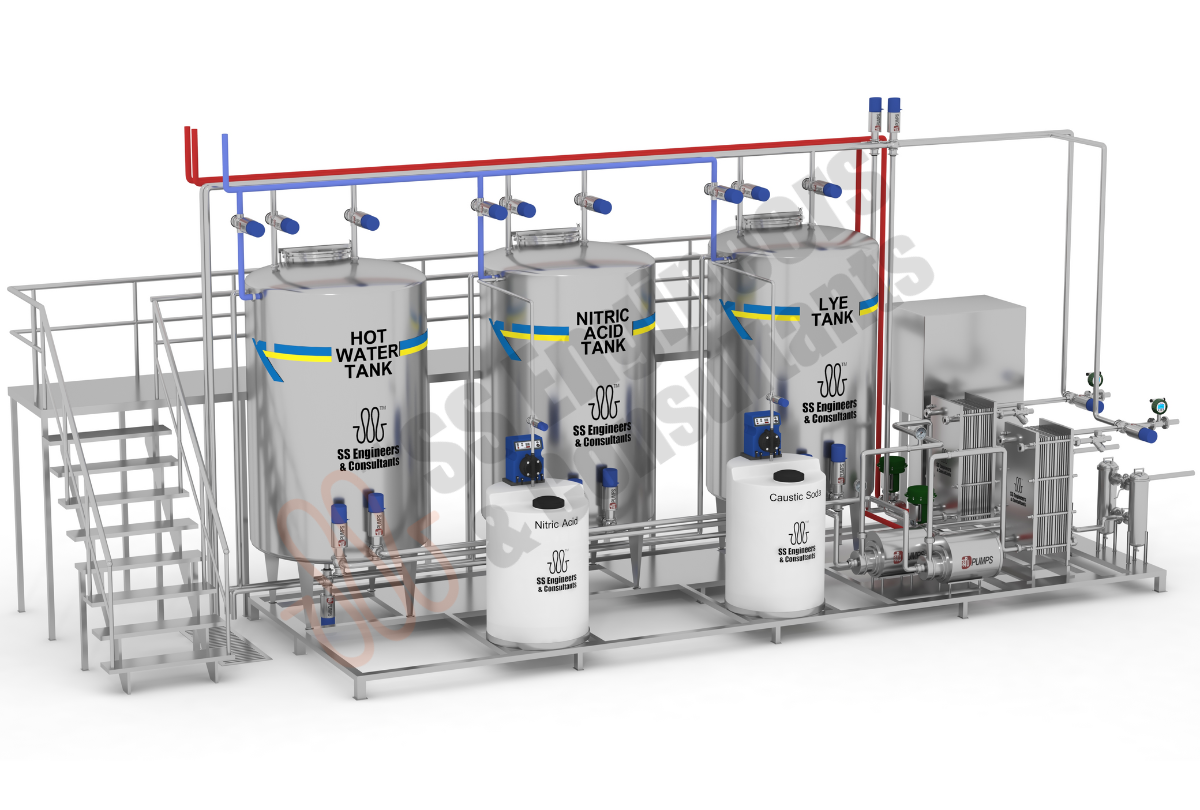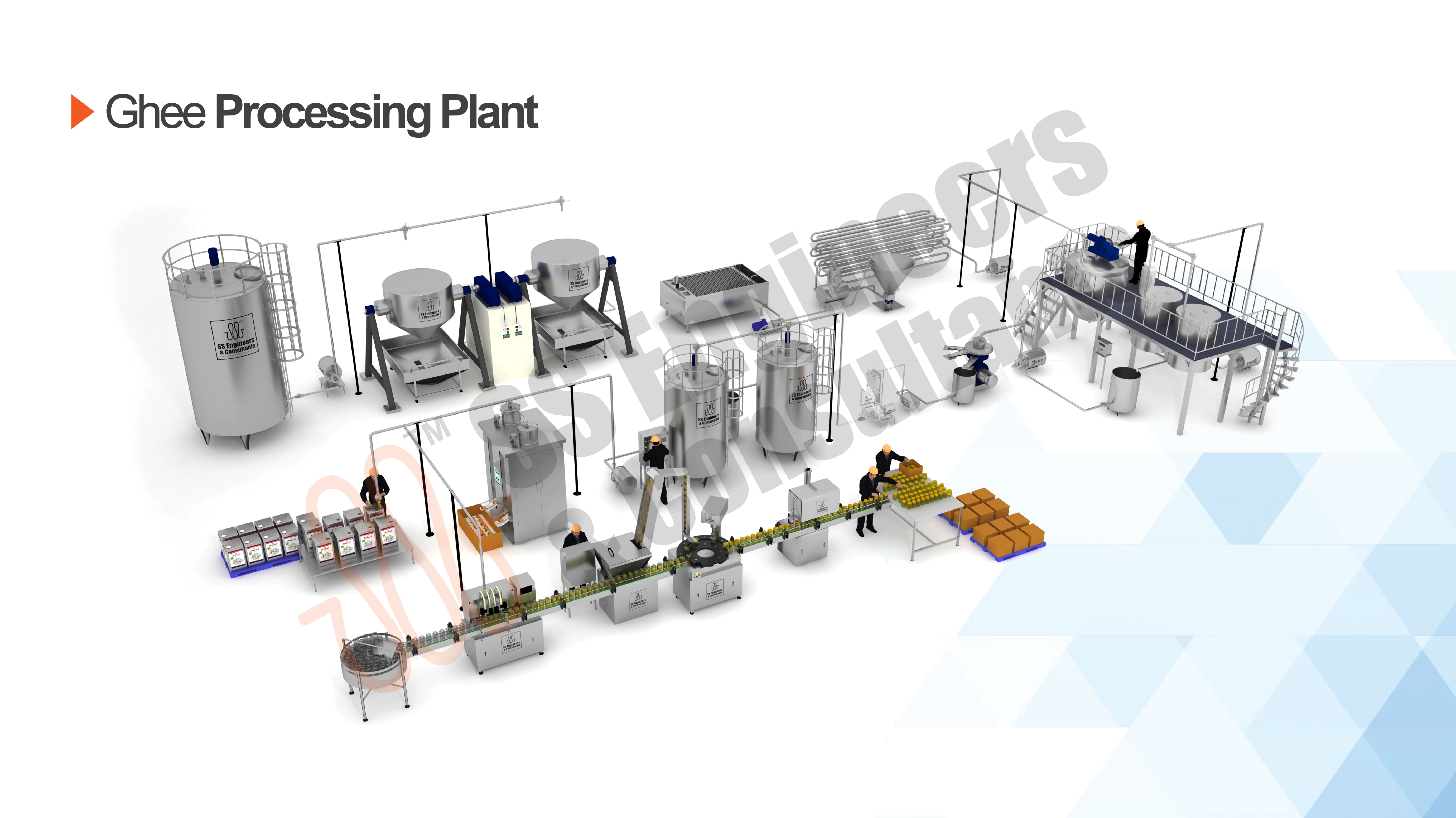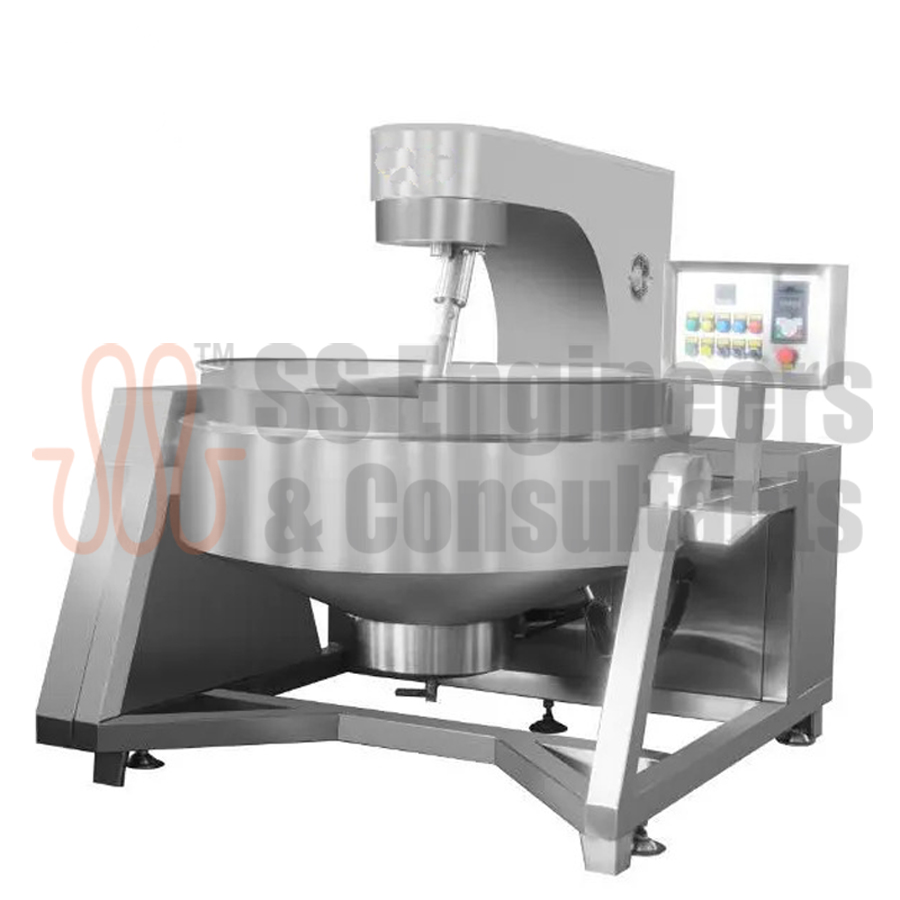Categories
Milk Chilling Plant

Experience superior cooling with SS Engineers & Consultants’ high-quality stainless steel tanks, available in a range of 500 to 5000 liters. Designed with the latest technology, our cooling tanks ensure efficiency and durability, meeting the rigorous demands of modern dairy operations.
Enhance your understanding of milk cooling systems to make informed decisions on preserving milk quality. For optimal results, cool milk to 18°C immediately after the first milking, maintain it below 13°C after subsequent milkings, and ensure it stays below 7°C until collection. Our advanced cooling solutions help you achieve precise temperature control, ensuring freshness and extending milk shelf life
- Robust stainless-steel construction for durability and resistance to corrosion
- High-efficiency chilling system to rapidly cool milk, preserving freshness and quality
- Integrated CIP (Clean-in-Place) system for easy and hygienic maintenance
- Accurate temperature control to maintain ideal chilling conditions
- Modular design suitable for various processing capacities and layouts
- Compatible with raw milk, cream, and other liquid dairy products for flexible operations
- Energy-efficient refrigeration technology to lower power consumption and reduce operating costs
See it in Action
Need Custom Solutions?
Our team can develop specialized cleaning solutions tailored to your specific automotive cleaning requirements.
Contact Our Experts

